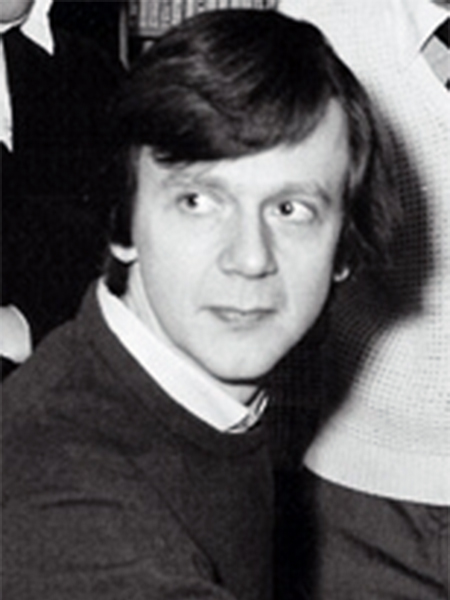Peter Howell

(this image appears for illustrative purposes only and no attempt is made to supersede any copyright attributed to it)
Peter Howell
Born: Saturday 3rd April 1948 (age: 77)Peter Howell is a musician and composer, best known for his work on Doctor Who as a member of the BBC Radiophonic Workshop.
Howell's musical career began in the late 1960s working with John Ferdinando in various psych folk bands including Agincourt and Ithaca. His psych folk work also included a musical version of Lewis Carroll's Through the Looking-Glassand a comedy musical entitled Tomorrow Come Someday. Howell and Ferdinando recorded five albums before Howell became a member of the Radiophonic Workshop. In 1970 he became a studio manager at the BBC and in 1974 he joined the Radiophonic Workshop with which he would associated until 1997.
His work on Doctor Who began in 1975 when he provided some accompanying incidental music for Revenge of the Cybermen and special sound for Planet of Evil. When John Nathan-Turner became producer of Doctor Who in 1980, he decided that the music needed to be updated and commissioned Howell to provide a new arrangement of the Doctor Who theme to accompany a new title sequence. Whereas the original arrangement of the theme (written by Ron Grainer) had been realised by Delia Derbyshire (and, originally, assisted by Dick Mills) using musique concr�te techniques, Howell arranged Grainer's theme on analogue synthesisers - primarily using a Yamaha CS-80 and an ARP Odyssey Mk3.
Howell's new arrangement first appeared in 1980 on The Leisure Hive, for which Howell had also recorded the incidental score, and was used throughout Tom Baker's final season on the programme as well as Peter Davison's tenure as the Doctor. For Colin Baker's first season in 1984, however there was a problem in transferring the music so the theme was slightly lower in pitch. This version continued to be used until Colin Baker's 1985 story, Revelation of the Daleks. Between 1980 and 1985 Howell also provided incidental music for ten stories of Doctor Who. In 1986, Nathan-Turner commissioned a new theme arrangement by Dominic Glynn which ended Howell's association with Doctor Who on television, although he did provide music for the radio series The Paradise of Death and The Ghosts of N-Space as well as a new version of his theme for use in the Big Finish audio dramas.
Aside from Doctor Who, Howell's Radiophonic Workshop work includes an album of original recordings in 1978 entitled Through A Glass Darkly (credited to Peter Howell & The Radiophonic Workshop) and "Greenwich Chorus", a piece which accompanied an episode of Jonathan Miller's popular The Body in Question which was controversial at the time for its use of the vocoder. Howell composed the theme tunes to The Machine that Changed the World (1992), a 5-part television series on the history of the electronic digital computer, to Robert Hughes' 1979-80 8-part series on Modern art (The Shock of the New), and to the Badger Girl and Spywatch series of the long-running BBC schools' programme,Look and Read. Howell was responsible for the BBC Video logo's music in 1985.
In recent years Howell's incidental music for the Doctor Who stories The Leisure Hive and Meglos has appeared on volumes 3 and 4 of the Doctor Who at the BBC Radiophonic Workshop compilation albums and much of his early folk material with John Ferdinando has also been re-released on CD.
Biography from the Wikipedia article, licensed under CC-BY-SA







 Home Region:
Home Region:
